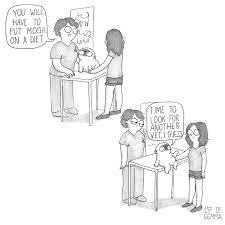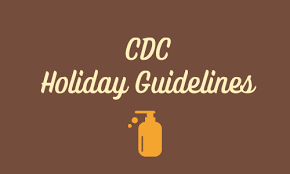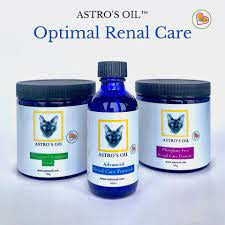Archive for December, 2020
It’s Time For Me To Change Vets
 I’ve been taking my pets to Savanna Animal Hospital in Lewes, Delaware for many years and over the years I’ve become more and more dissatisfied with them. First of all, they have become more like a factory. My cat is passed around from doctor to doctor but most important, I’m getting the wrong diagnosis which has affected my cat Atlantis.
I’ve been taking my pets to Savanna Animal Hospital in Lewes, Delaware for many years and over the years I’ve become more and more dissatisfied with them. First of all, they have become more like a factory. My cat is passed around from doctor to doctor but most important, I’m getting the wrong diagnosis which has affected my cat Atlantis.
Atlantis is 16 years old and has kidney disease and hyperthyroidism yet Savannah always pushes vaccines. Don’t get me wrong, vaccines are necessary but not in every case. In October, I took Atlantis in for his blood work, they gave him a Distemper vaccine even though he NEVER leaves the house. I was then told by a friend that he should have not have been given than vaccine. Here’s an except from catinfo.org regarding vaccinations and kidney disease:
As already mentioned, this is the most common subject that I consult on and it is upsetting to see so many domestic cats end up dying from kidney disease when it is not that prevalent in wild cats. I understand that cats in the wild do not typically live as long as our little furry buddies but I still cannot accept that natural aging is the only factor involved in this disease process.
Why do so many cats end up in kidney failure?
The answer – or at least, part of the answer – may lie in the fact that we have been over-vaccinating cats for many years.
Studies have demonstrated an association between the FVRCP vaccine and interstitial nephritis which is the fancy term for kidney inflammation.
At one point, Savannah also recommended giving Atlantis pepcid for his stomach but never told me when to stop. I’ve been giving him 1/4 pill each day for many months. Since his visit, he has been vomiting almost everyday and has diarrhea consistently. So I took matters into my own hands. A young man at our local pet store educated me on the affects to pepcid. He said that it stops stomach acid which cats need and causes digestive problems such as vomiting and diarrhea. I promptly stopped giving him this and over the past few days, the vomiting and diarrhea has stopped!
Another issue is that I can never call Savannah to ask a simple question, they’re response is that Imust take him in. Of course they’ll say that, they’ll make another $300!
The time has come to switch vets and we will be taking our pets to a much more highly recommended vet in the future. It’s difficult but I must say we must question our vets and if you’re not satisfied with the results, make a change! You pet is worth it!
Remember, your pets count!
Astro’s oil is a wonderful natural product not recommended by an Vet. It helps cats with Kidney disease and can improve life quality and extend life. I’ve been using it for years and swear by it. Find out more about Astro’s Oil or order online from their website: www.astrosoil.com
It’s another 60s and 70s weekend with lots of holiday favorites on Edgewater Gold Radio! Ask Alexa to “play Edgewater Gold Radio” or listen from our website: Edgewater Gold Radio.com.
Guidelines from the CDC to Keep You and Your Pets Safe from Coronavirus During the Holidays
 Considerations for Small Gatherings of Family and Friends
Considerations for Small Gatherings of Family and Friends
The following was written by the CDC.
Celebrating virtually or with members of your own household (who are consistently taking measures to reduce the spread of COVID-19) poses the lowest risk for spread. Your household is anyone who currently lives and shares common spaces in your housing unit (such as your house or apartment). This can include family members, as well as roommates or people who are unrelated to you. People who do not currently live in your housing unit, such as college students who are returning home from school for the holidays, should be considered part of different households. In-person gatherings that bring together family members or friends from different households, including college students returning home, pose varying levels of risk.
Organizers and attendees of larger events should consider the risk of virus spread based on event size (number of attendees and other factors) and take steps to reduce the possibility of infection, as outlined in the Considerations for Events and Gatherings.
Several factors can contribute to the risk of getting and spreading COVID-19 at small in-person gatherings. In combination, these factors will create various amounts of risk:
- Community levels of COVID-19 – High or increasing levels of COVID-19 cases in the gathering location, as well as in the areas where attendees are coming from, increase the risk of infection and spread among attendees. Family and friends should consider the number of COVID-19 cases in their community and in the community where they plan to celebrate when deciding whether to host or attend a gathering. Information on the number of cases in an area can often be found on the local health department website.
- Exposure during travel – Airports, bus stations, train stations, public transport, gas stations, and rest stops are all places travelers can be exposed to the virus in the air and on surfaces.
- Location of the gathering – Indoor gatherings, especially those with poor ventilation (for example, small enclosed spaces with no outside air), pose more risk than outdoor gatherings.
- Duration of the gathering – Gatherings that last longer pose more risk than shorter gatherings. Being within 6 feet of someone who has COVID-19 for a cumulative total of 15 minutes or more greatly increases the risk of becoming sick and requires a 14-day quarantine.
- Number and crowding of people at the gathering – Gatherings with more people pose more risk than gatherings with fewer people. CDC does not have a limit or recommend a specific number of attendees for gatherings. The size of a holiday gathering should be determined based on the ability of attendees from different households to stay 6 feet (2 arm lengths) apart, wear masks, wash hands, and follow state, local, territorial, or tribal health and safety laws, rules, and regulations.
- Behaviors of attendees prior to the gathering – Individuals who did not consistently adhere to social distancing (staying at least 6 feet apart), mask wearing, handwashing, and other prevention behaviors pose more risk than those who consistently practiced these safety measures.
- Behaviors of attendees during the gathering – Gatherings with more safety measures in place, such as mask wearing, social distancing, and handwashing, pose less risk than gatherings where fewer or no preventive measures are being implemented. Use of alcohol or drugs may alter judgment and make it more difficult to practice COVID-19 safety measures.
The following people should not attend in-person holiday gatherings
People with or exposed to COVID-19
Do not host or participate in any in-person gatherings if you or anyone in your household
- Has been diagnosed with COVID-19 and has not met the criteria for when it is safe to be around others
- Has symptoms of COVID-19
- Is waiting for COVID-19 viral test results
- May have been exposed to someone with COVID-19 in the last 14 days
- Is at increased risk of severe illness from COVID-19
Do not host or attend gatherings with anyone who has COVID-19 or has been exposed to someone with COVID-19 in the last 14 days.
People at increased risk for severe illness
If you are an older adult or person with certain medical conditions who is at increased risk of severe illness from COVID-19, or live or work with someone at increased risk of severe illness, you should avoid in-person gatherings with people who do not live in your household.
Considerations for Hosting or Attending a Gathering
If you will be hosting a gathering during the holiday season that brings people who live in different households together, follow CDC tips for hosting gatherings. If you will be attending a gathering that someone else is hosting, follow CDC Considerations for Events and Gatherings. Below are some general considerations for hosting a gathering that brings together people from different households. Guests should be aware of these considerations and ask their host what mitigation measures will be in place during the gathering. Hosts should consider the following:
- Check the COVID-19 infection rates in areas where attendees live on state, local, territorial, or tribal health department websites. Based on the current status of the pandemic, consider if it is safe to hold or attend the gathering on the proposed date.
- Limit the number of attendees as much as possible to allow people from different households to remain at least 6 feet apart at all times. Guests should avoid direct contact, including handshakes and hugs, with others not from their household.
- Host outdoor rather than indoor gatherings as much as possible. Even outdoors, require guests to wear masks when not eating or drinking.
- Avoid holding gatherings in crowded, poorly ventilated spaces with persons who are not in your household.
- Increase ventilation by opening windows and doors to the extent that is safe and feasible based on the weather, or by placing central air and heating on continuous circulation.
- For additional information on increasing ventilation, visit CDC’s information on Cleaning and Disinfecting Your Home.
- Winter weather can be cold, wet, and unpredictable. Inclement weather makes it difficult to increase ventilation by opening windows or to hold an event outdoors.
- If setting up outdoor seating under a pop-up open air tent, ensure guests are still seated with physical distancing in mind. Enclosed 4-wall tents will have less air circulation than open air tents. If outdoor temperature or weather forces you to put up the tent sidewalls, consider leaving one or more sides open or rolling up the bottom 12 inches of each sidewall to enhance ventilation while still providing a wind break.
- Require guests to wear masks. At gatherings that include persons of different households, everyone should always wear a mask that covers both the mouth and nose, except when eating or drinking. It is also important to stay at least 6 feet away from people who are not in your household at all times.
- Encourage guests to avoid singing or shouting, especially indoors. Keep music levels down so people don’t have to shout or speak loudly to be heard.
- Encourage attendees to wash their hands often with soap and water for at least 20 seconds. If soap and water are not readily available, use hand sanitizer that contains at least 60% alcohol.
- Provide guests information about any COVID-19 safety guidelines and steps that will be in place at the gathering to prevent the spread of the virus.
- Provide and/or encourage attendees to bring supplies to help everyone to stay healthy. These include extra masks (do not share or swap with others), hand sanitizer that contains at least 60% alcohol, and tissues. Stock bathrooms with enough hand soap and single use towels.
- Limit contact with commonly touched surfaces or shared items, such as serving utensils.
- Clean and disinfect commonly touched surfaces and any shared items between use when feasible. Use EPA-approved disinfectantsexternal icon.
- Use touchless garbage cans if available. Use gloves when removing garbage bags or handling and disposing of trash. Wash hands after removing gloves.
- Plan ahead and ask guests to avoid contact with people outside of their households for 14 days before the gathering.
- Treat pets as you would other human family members – do not let pets interact with people outside the household.
Remember your pets count!
For cats with kidney disease, use Astros oil. High potency natural products to help sustain life and improve life quality. www.astrosoil.com
Great oldies from the 50s through the 80’s and holiday favorites are playing right now on Edgewater Gold Radio! Ask Alexa to “play Edgewater Gold Radio” or listen from our website: Edgewater Gold Radio.com.
Your Cats Health Checklist
 Sometimes us cat owners can overlook symptoms in our pet. The Cornell University College of Veterinary Medicine has provided a checklist of conditions which can affect any cat especially senior cats.
Sometimes us cat owners can overlook symptoms in our pet. The Cornell University College of Veterinary Medicine has provided a checklist of conditions which can affect any cat especially senior cats.
If you can’t answer “yes” to all of the following statements, please call your veterinarian as soon as possible.
My cat:
is acting normally; seems active and in good spirits
does not tire easily with moderate exercise
does not have seizures or fainting episodes
has a normal appetite
has had no significant change in weight
has a normal level of thirst and drinks the usual amount of water (about an ounce per pound of body weight per day, or less)
does not vomit often
does not regurgitate undigested food
has no difficulty eating or swallowing
has normal appearing bowel movements (formed and firm with no blood or mucus)
defecates without difficulty
urinates in normal amounts and with normal frequency; urine color is normal
urinates without difficulty
always uses a clean litter box
has not developed any new offensive behavioral tendencies (such as aggression or urine spraying)
has gums that are pink with no redness, swelling, or bleeding
does not sneeze and has no nasal discharge
has eyes that are bright, clear, and free of discharge
has a coat that is full, glossy, and free of bald spots and mats; no excessive shedding is evident
doesn’t scratch, lick, or chew excessively
has skin that is not greasy and has no offensive odor
is free of fleas, ticks, lice, and mites
has no persistent abnormal swellings
has no sores that do not heal
has no bleeding or discharge from any body opening
has ears that are clean and odor free
doesn’t shake its head or scratch its ears
hears normally and reacts as usual to its environment
walks without stiffness, pain, or difficulty
has feet that appear healthy, and has claws of normal length
breathes normally without straining or coughing
My cat Atlantis has multiple issues and does exhibit some of these symptoms. He is checked regularly by our vet and I’m constantly monitoring is symptoms and making some adjustments as necessary. You should do the same. Don’t assume that your cat will stay healthy forever.
Remember ,your pets count!
Astro’s Oil can help with Feline Kidney disease. I’ve had positive results and have been using it for years. Read about Astro’s oil or order from their website: www.astrosoil.com.
All of your favorite oldies and holiday music are now playing on Edgewater Gold Radio! Live, local and reliable from Rehoboth Beach, De. 50s 60s 70s and 80s all the time! Listen and see for yourself. Edgewater Gold Radio.com.
Buying Pet Medications Online
 Technology has come a long way. Now we could do almost anything online even buy our pet’s medication but is it safe? The FDA has warned about buying prescription medication online. The truth is buying pet medication online is very safe. You get the same medication as the ones you get from the vets office but you must d0 your homework first.
Technology has come a long way. Now we could do almost anything online even buy our pet’s medication but is it safe? The FDA has warned about buying prescription medication online. The truth is buying pet medication online is very safe. You get the same medication as the ones you get from the vets office but you must d0 your homework first.
To make sure that you get legitimate medications, make sure that you’re on a secure internet site. You should see a small gold padlock in the status bar of your browser (usually on the bottom). If the gold padlock is open the page is not encrypted. If the gold padlock is closed that means the sight has 128 bit encryption which means that it offers the highest level of protection offered for all your Internet communications, including credit card use and other financial transactions. It is important to note that the only place the locked padlock is important is on the page where you are entering your credit card or bank information. It does not have to appear on every page of the website. Make sure that you are ordering the exact medication that your vet prescribed. When in doubt, always verify with your vet. You must also know the dosage so before you attempt to order pet meds online, it is vital that you have this information correct!
The advantage of buying online is that you may get the medication a bit cheaper but that’s not the main reason. Taking your pet in to the vet can be risky if there are other sick pets in the waiting area. If your pet is sick, you probably would rather keep him home and not disturb him .In this case getting the medication delivered has it’s advantages.
Remember, your pets count!
 If your cat has been diagnosed with kidney disease, add Astro’s Oil to his diet. Astro’s Oil is a natural product that helps slow down the progress of kidney disease. You can order Astro’s oil online at www.astrosoil.com.
If your cat has been diagnosed with kidney disease, add Astro’s Oil to his diet. Astro’s Oil is a natural product that helps slow down the progress of kidney disease. You can order Astro’s oil online at www.astrosoil.com.
Great oldies from the 50s, 60’s, 70’s and 80’s plus all of your holiday favorites on Edgewater Gold Radio. Ask Alexa to “play Edgewater Gold Radio or listen from our website: edgewatergoldradio.com,